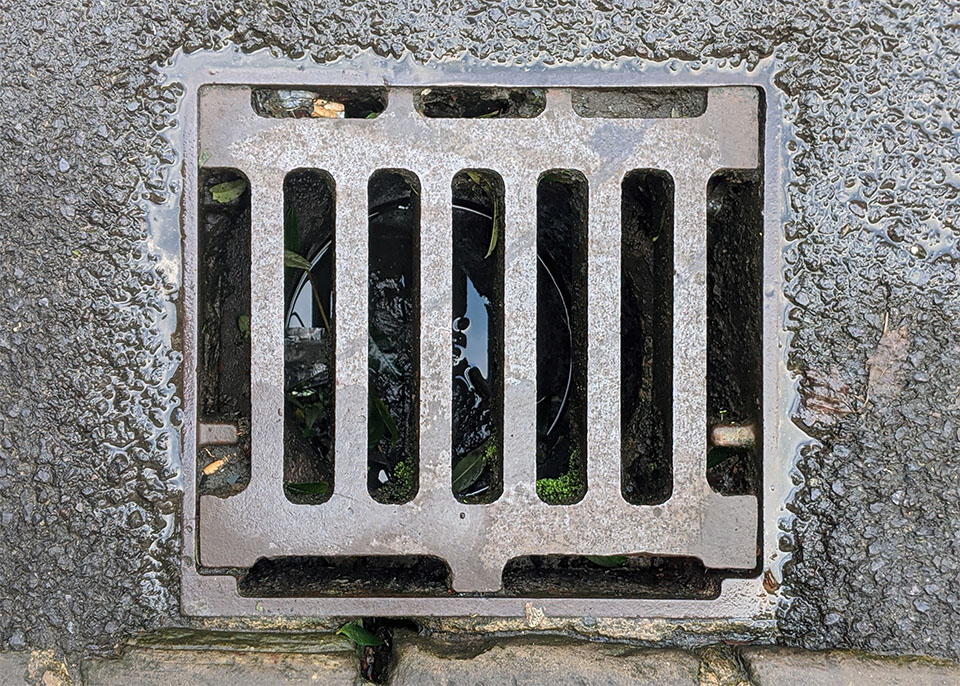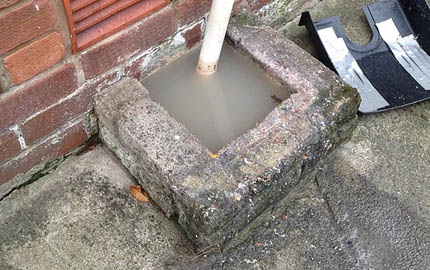Do you find yourself searching for additional info involving 8 Tips For Clearing A Blocked Drain?

Introduction
Dealing with an obstructed drain can be an aggravating experience, interrupting daily activities and possibly triggering damage to your residential property. However, prior to reaching out to pipes specialists, there are steps you can take to deal with the issue yourself. In this guide, we'll check out DIY services and preventive measures to deal with a blocked drainpipe effectively.
Recognizing the Concern
The initial step in dealing with an obstructed drain is recognizing the signs. Sluggish drainage, gurgling audios, foul odors emanating from drains pipes, or water backing up are common indications of a blocked drainpipe. Identifying these signs early can aid prevent better difficulties.
Usual Causes of Obstructed Drainpipes
Recognizing the factors that contribute to drain pipes blockages is crucial for effective resolution. Typical culprits consist of hair, soap residue, grease, food particles, and international things like hygienic products or paper towels. Tree origins attacking below ground pipelines can additionally trigger considerable obstructions.
DIY Solutions
For small obstructions, a number of do it yourself remedies can be efficient. Putting boiling thin down the drainpipe can help dissolve grease and debris. Sodium bicarbonate and vinegar or a mix of salt and baking soda can act as all-natural cleansers. Making use of a plunger or pipes serpent to remove blockages is one more alternative.
Devices and Devices
Having the right devices on hand can make DIY drainpipe cleansing a lot more reliable. A bettor is a versatile tool for removing obstructions in sinks, commodes, and showers. A pipes snake or auger can reach much deeper blockages, while drain cleaning chemicals can be made use of very carefully for persistent clogs.
Safety nets
To stay clear of future clogs, embracing preventive measures is essential. Install drain guards or filters to catch hair and particles before they go into the pipes. On a regular basis flush drains with warm water to liquify grease build-up, and avoid taking care of oil or strong waste down the drain.
When to Call a Specialist
While DIY options can fix small clogs, particular signs suggest the need for expert assistance. Consistent blockages, foul odors despite cleaning initiatives, or numerous drains backing up concurrently are warnings that necessitate expert treatment.
Selecting the Right Plumbing Solution
When selecting a pipes service, consider variables such as experience, licensing, and consumer reviews. Pick a reputable plumbing with a record of quality craftsmanship and clear prices methods.
Price Factors to consider
The cost of expert drain cleaning services can vary depending on the severity of the clog and the plumbing technician's prices. Demand quotes from numerous service providers and inquire about any type of service charges to ensure openness and avoid surprises.
Safety Measures
When trying DIY drainpipe cleansing, focus on security. Use safety gloves and eyeglasses to stay clear of contact with harmful chemicals or germs. Never ever blend various drainpipe cleansing products, as this can create hazardous fumes.
Case Studies
Real-life instances illustrate the efficiency of do it yourself remedies and the relevance of timely professional treatment in resolving drain blockages.
Final thought
By adhering to the tips outlined in this overview, you can effectively tackle obstructed drains pipes and protect against future pipes issues. Whether selecting DIY solutions or looking for professional aid, punctual activity is crucial to maintaining a healthy and balanced pipes system and protecting the honesty of your home.
9 Ways You Can Clear a Blocked Drain
Blocked Drains from Hair
We’ve seen it all before, a build-up of hair that’s leads to a clogged drain. Most times it’s a moderately easy task to simply ‘remove the hair’, but if it’s not cleared up straight away – it can cause a lot of issues down the line.
Hair falling off the body in the shower or while getting ready over the sink and in the bathroom is one of the most common causes of blocked sinks and drains. But whilst it’s a common problem for many homeowners, there are ways you can fix your drain and put a long-term solution in place.
How to Fix Blocked Drains from Hair?
What to do: Small amounts of hair can be removed by pulling it out with gloved hands to avoid it getting worse. Drain cleaning devices such as drain spiders can also be purchased to help remove the hair from the drain. However, it’s important to be careful as some devices and cheap hair removal chemicals can make the problem worse.
It’s important to remove the hair before it gets clogged into the entry of the drain pipes. If you’re unable to reach the hair or the devices aren’t working as intended, it’s time to speak to a blocked drain specialist.
Blocked Drains from Plants and Dirt
Natural debris like trees, shrubs, dirt and leaves can be an issue for water drains, especially after spring and autumn. Your regular garden and drain maintenance that keeps the outdoor area looking great is also essential to the productivity of your water drains and pipes.
Leaves aren’t the only culprit, however – tree roots are notorious for growing underneath in search of water and as a result, will usually head straight to your drains.
How to Fix Blocked Drains from Plants and Dirt?
What to do: To prevent plants, leaves and dirt from blocking the drains, keep the outdoor area clear of fallen leaves and debris. If this mess is left long enough, it will cause your drains to become severely blocked.
Keep your trees well-watered so they are less drawn to the drains as a source of moisture and stay away from clogging plants where possible; like willow trees, oak trees, magnolias, boxwood shrubs, palm trees and gum trees.
While ensuring your yard is free from leaves and dirt is a great way to prevent build-up, sometimes the real issues lay under the surface. Tree roots can crack your drain pipes beneath your home – causing severe blockages and leaks. Specialist drain cleaning equipment can be used to clear the blockage and pipe relining technology can provide a long-term structural repair.
Blocked Drains from Grease Build-up
Like hair in the bathroom, grease and fat will build-up in the kitchen sink over time. These fatty substances are a very common cause of blocked drains and pipes and can be a nuisance to clear out.
Any grease waste or fatty substance that is washed down the sink will stick to the inside of the pipes and eventually build up to a point no liquid can pass through. It’s important to be aware that this grease doesn’t leave the pipes as easily as you would expect.
How to Fix Blocked Drains from Grease Build-up?
What to do: Avoid washing these fatty ingredients down the affected drain as much as possible. Grease that’s washed down the drain will cool and harden in the pipes.
A smart way to prevent this build-up of grease is to start collecting all glass jars that you purchase at the supermarket. Then, instead of pouring this oil or kitchen grease down the drain, put it in the small glass or plastic containers to discard with your garbage.
Blocked Drains from Toiletries
As more people get into the habit of disposing of toiletries down the drain, bigger problems are being caused in our pipes and sewers. Nappies and baby wipes are the two common issue items known to block drains after being flushed down the toilet.
Such items become immersed with water, they absorb the moisture and enlarge, quickly blocking access to water drains and pipes.
How to Fix Blocked Drains from Toiletries?
What to do: This way of disposing of toiletries is dreadful for the environment and everyone should be encouraged to dispose of toiletries the right way. In the home, these items should be taken out with your garbage, just as people should make use of the designated bins when using public changing rooms and toilets.
Blocked Drains from Heavy Rain and Storms
Throughout the wet season, drains will experience floods of water because of heavy rainfall. Because drains aren’t really designed to take the full impact of this weather, water build-up can be common in many Perth households.
When there is an overflow of rainwater in gutters and downpipes, there’s a good chance there’s a blocked drain that needs to be cleared out.
How to Fix Blocked Drains from Heavy Rain and Storms?
What to do: Ensure gutters and outdoor drains are cleaned during the wet season to prevent a build-up of leaves which will cause a bigger blockage. Problems caused by heavy rain and storms will usually require a plumber to help unclog and assist with the wastewater removal. If this is the case, contact them as soon as possible to prevent further build-up and potential flooding in your home and yard.

Do you like reading up on How to handle a clogged drain in your home? Try leaving a short review directly below. We'd be pleased to listen to your reactions about this content. Hoping that you come back again in the future. Are you aware of another person who is excited by the topic? Why not promote it. Many thanks for your time invested reading it.
Call Today